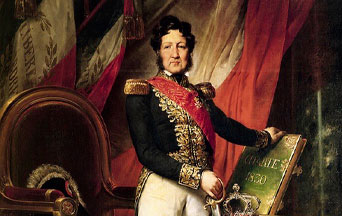
The Church has always had to fight the tendency of certain Catholics to adapt her doctrines and principles to the prevailing ideas of the time. This constant temptation causes almost every heresy and doctrinal deviation that has ever appeared.
In France, the Constitutional Church emerged during the Revolution. During the Restoration, Gallicanism once again caused concern to the Holy See. In the reign of Louis Philippe, romanticism and the cult of non-Catholic “good men” took on great importance. Catholic liberalism came together with the liberal Second Republic (1848-51. In turn, that liberalism diluted truths and turned the heads of the faithful toward the fashionable novelties of the period.
The split inside the French Catholic world became clear from 1848 onward. On one side were Ultramontanes; on the other liberal Catholics. Between the two stood a whole undefined gamut of people who sometimes favored error and sometimes fought it. Invariably, this befuddlement prevented the complete unmasking of liberal Catholicism. It is necessary to remember the political atmosphere around the establishment of the Second Republic to view these events clearly. In the mid-nineteenth century, liberal Catholics within the Church exactly matched republican moderates in the political sphere.
Revolutionaries proclaimed the republic on August 10, 1792, and imposed it so people would gradually get used to their tyranny. Given those circumstances, the republic could not survive. The regime was so contrary to the wishes of the French people that its leaders had to resort to terror. Even then, it only lasted a few years. After that experiment, the revolutionaries quietly disappeared. At the same time, Napoleon, basking in the prestige of military glory and pseudo-empire, consolidated the errors of the French Revolution, preparing the ground for its future triumph.
Eternal and Natural Law: The Foundation of Morals and Law
After the 1815 Restoration, Louis XVIII and Charles X had “reestablished everything but restored nothing,” as Joseph de Maistre put it. However, the mere presence of a Bourbon on the throne considerably delayed the progress of revolutionary ideas.
The republican form was the political ideal of the French Revolutionaries, although most did not openly proclaim it. The vast majority of nineteenth-century French politicians were republicans. However, they left the overt propaganda to a small group that constituted the Republican Party. During the Restoration, the possibility of proclaiming a republic was so remote that its adherents, unable to win on their own, allied themselves with the remnants of Bonapartism. They engaged in underground activities through Masonic lodges such as the Carbonari in Italy and the “shirtless ones” in Spain. They planned plots and assassinations, forming a veritable shock troop for the grand Masonic lodges that pretended to support the legitimate kings.
The fall of Charles X opened up new possibilities. While the atmosphere precluded a republic, a prince “devoted to the cause of the Revolution” was available. He was the son of a regicide but had the great advantage of belonging to the royal family. Such a new regime would provide an excellent transition between monarchy and republic. It would give people the impression that they could have a monarchy without legitimate kings. That is why we see La Fayette, a Carbonarian leader and president of republican committees, prefer Louis Philippe to a republic when the 1830 revolution was victorious.
In the early days of Louis Philippe’s reign, most members of the Republican Party did not understand their chieftains’ strategic retreat. They redoubled their violence. After 1840, however, they completely changed their attitude. The republicans broke with the Bonapartists, whom they thought they no longer needed. They also renounced illegal activities and sought to moderate their ideas to make them more appealing. They repudiated the revolutionary excesses of 1792. They employed the language of the Gospels and events from the Church’s early centuries to attract “tender-hearted” Catholics.
 Learn All About the Prophecies of Our Lady of Good Success About Our Times
Learn All About the Prophecies of Our Lady of Good Success About Our Times
This new Republican Party created the 1848 revolution out of the general confusion. Between 1792 and 1848, France had been a republic, an empire, a legitimate monarchy, and an illegitimate monarchy. Republicans like La Fayette had defended the monarchy. Monarchists like Thiers gave republican speeches. When the public mood allowed it, an almost bloodless revolution proclaimed the Second Republic.
The author, poet and statesman Alphonse de Lamartine was an early promoter of the Second Republic. A man essentially without defined ideas, he was a Legitimist and Ultramontane Catholic during the Restoration. He favored Louis Philippe and turned vaguely deist after 1830. At one of the banquets that preceded the ’48 Revolution, Alexandre Ledru-Rollin, head of the republicans, cited Lamartine as a democratic celebrity. In a newspaper article, Lamartine replied:
“Ledru-Rollin’s speech is one of the most eloquent and well thought out he has ever delivered. Ledru-Rollin’s communism is more or less our own: intelligent love of the people, lively pity for the suffering of the masses, serious resentment for injustices to which they are victims under legislation that assures them neither vote nor representation, ultimately desiring the organization of truly fraternal institutions descending from society’s top to bottom and raising the level of workers to those of owners and citizens by measures such as teaching, wages and the State’s universal assistance. That is the true and healthy communism that does not kill property but strengthens it by multiplying it.”
Unwilling to present the Republican Party as the force behind the new republic, republicans looked to Lamartine as the leader they needed. A man without defined principles, of great literary fame, and full of vanity, Lamartine would be the ideal plaything in their hands. He lent himself to the effort, and the republicans proclaimed the Second Republic.
The confusion was complete. Nobody understood the others any longer. Everyone was a republican but understood the Republic in different ways. In this environment, France applied universal suffrage for the first time, and disoriented Catholics defined their positions once and for all.

